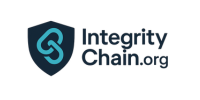SKAEL - AI-Enabled Startup Founder Pleads to $30M Fraud

SKAEL Inc., based in San Francisco and operating in automation and AI-based “digital employees,” was led by founder and ex-CEO Baba Nadimpalli from 2016 to 2022. In June 2025, Nadimpalli pleaded guilty to securities fraud and wire fraud, admitting to raising over $30 million from investors between 2021–2022 by fabricating annual recurring revenue (ARR), customer data, and bank statements. The company’s inflated metrics misled investors regarding SKAEL's growth and viability.
Timeline of Key Events
| Date | Event |
|---|---|
| 2016 | SKAEL founded, focused on AI-powered automation |
| Jan 17, 2024 | Nadimpalli indicted by Northern District of California grand jury |
| Jan 2021–Feb 2022 | Fabricated ARR, inflated to “millions of dollars” |
| Sept 24, 2024 | SEC files complaint |
| June 26, 2025 | Nadimpalli pleads guilty to securities and wire fraud |
Fraud Mechanics
- Revenue Fabrication: Overstated ARR by over 10× the true level—claiming “millions” in recurring revenue when reality was far lower.
- False Customer Claims: Misled about the number and scale of enterprise clients.
- Falsified Financial Documents: Provided fake bank and transaction statements to support false metrics and close fundraising rounds.
Financial Overview
- Total Funds Raised: > $30 million during 2021–2022 based on falsified data.
- ARR Overstatement: Claimed ARR was 10x actual figures.
- Misappropriation: Funds used to maintain a growth facade, not operational scale—true metrics undisclosed.
Legal Proceedings & Admission
- Charges: Wire fraud and securities fraud.
- Plea: June 26, 2025 — Nadimpalli pleads guilty.
- Sentencing: Pending, but facing up to several decades under federal guidelines.
Quote from admission:
Nadimpalli “misled investors by knowingly providing false statements about SKAEL’s revenue, customer base, and financial strength.”
Impact & Lessons
- Investor Deception: High-growth hype based on false recurring revenue can erode trust and trigger policy changes in diligence.
- Governance Gaps: Lack of independent verification enabled the fraud.
- AI-Washing Alert: Highlights broader enforcement trend targeting overstated AI capabilities.
Takeaways
- ARR claims must be independently audited or benchmarked—never accept C‑suite assertions alone.
- Financials must be traceable—insist on bank statements tied to actual invoice records.
- Enforceable governance—board oversight and financial controls are non-negotiable as startups scale.



